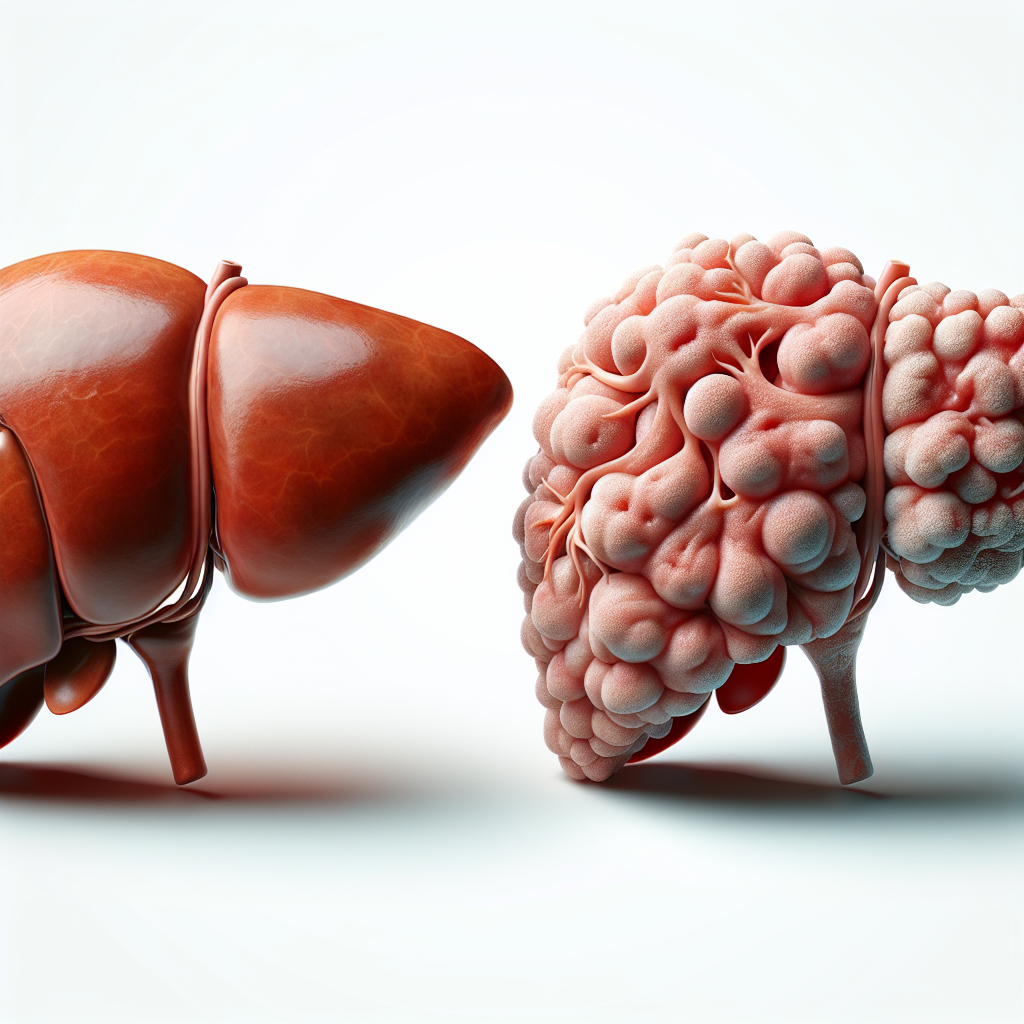Table of Contents
“Empowering Minds: Bridging Mental Health and Fentanyl Addiction Recovery”
Introduction

The connection between mental health and fentanyl addiction recovery is a critical area of focus in contemporary healthcare. Fentanyl, a potent synthetic opioid, has been at the center of the opioid crisis due to its high potential for addiction and overdose. Recovery from fentanyl addiction is a complex process that often intersects with mental health issues, such as depression, anxiety, and trauma. Addressing these co-occurring disorders is essential for effective treatment and long-term recovery. Integrated care approaches that combine mental health services with addiction treatment have shown promise in improving outcomes for individuals struggling with fentanyl addiction. Understanding and addressing the intricate relationship between mental health and fentanyl addiction is vital for developing comprehensive recovery programs that support sustained sobriety and overall well-being.
Understanding the Psychological Impact of Fentanyl Addiction
Understanding the psychological impact of fentanyl addiction is crucial for anyone involved in the recovery process, whether they are healthcare professionals, family members, or individuals battling the addiction themselves. Fentanyl, a potent synthetic opioid, has a profound effect not only on the body but also on the mind. The journey to recovery is often fraught with emotional and psychological challenges that can be as daunting as the physical withdrawal symptoms. Recognizing and addressing these mental health issues is essential for a successful recovery.
Fentanyl addiction often stems from a complex interplay of factors, including chronic pain, emotional distress, and sometimes, a history of trauma. The drug’s powerful effects can provide temporary relief from these underlying issues, creating a dangerous cycle of dependency. As the addiction deepens, the individual’s mental health typically deteriorates, leading to increased anxiety, depression, and feelings of hopelessness. This psychological toll can make the prospect of recovery seem insurmountable.
However, understanding that these mental health challenges are a natural part of the addiction process can be empowering. It allows individuals to approach recovery with a sense of compassion for themselves, recognizing that their struggles are not a sign of weakness but rather a part of the human experience. This shift in perspective can be the first step towards healing.
In the recovery process, addressing mental health is as important as managing physical withdrawal symptoms. Comprehensive treatment programs that integrate mental health support with addiction therapy are often the most effective. Cognitive-behavioral therapy (CBT), for example, can help individuals identify and change negative thought patterns that contribute to their addiction. Additionally, counseling and support groups provide a safe space for individuals to share their experiences and receive encouragement from others who understand their journey.
Moreover, the role of medication-assisted treatment (MAT) cannot be overlooked. Medications such as methadone, buprenorphine, and naltrexone can help manage withdrawal symptoms and reduce cravings, making it easier for individuals to focus on their mental health. When combined with therapy and counseling, MAT can significantly improve the chances of long-term recovery.
Family and community support also play a vital role in addressing the psychological impact of fentanyl addiction. Loved ones can offer emotional support, understanding, and encouragement, which are invaluable during the recovery process. Community programs and resources can provide additional layers of support, helping individuals feel connected and less isolated.
It’s important to remember that recovery is not a linear process. There will be setbacks and challenges along the way, but each step forward, no matter how small, is a victory. Celebrating these successes, no matter how minor they may seem, can boost morale and reinforce the belief that recovery is possible.
In conclusion, understanding the psychological impact of fentanyl addiction is essential for effective recovery. By addressing mental health issues alongside physical symptoms, individuals can build a strong foundation for lasting sobriety. With the right support, both from healthcare professionals and loved ones, and a compassionate approach to their own struggles, individuals can overcome the challenges of fentanyl addiction and reclaim their lives. The journey may be difficult, but it is also a testament to the resilience and strength of the human spirit.
Strategies for Mental Health Support During Fentanyl Recovery
The journey to recovery from fentanyl addiction is a challenging and multifaceted process, requiring a comprehensive approach that addresses both the physical and mental aspects of addiction. One of the most critical components of this journey is the support for mental health, which plays a pivotal role in ensuring long-term recovery and overall well-being. Understanding the connection between mental health and fentanyl addiction recovery is essential for developing effective strategies that can help individuals navigate this difficult path.
First and foremost, it is important to recognize that addiction and mental health are deeply intertwined. Many individuals who struggle with fentanyl addiction also suffer from co-occurring mental health disorders such as depression, anxiety, or post-traumatic stress disorder (PTSD). These conditions can exacerbate the addiction, creating a vicious cycle that is difficult to break. Therefore, addressing mental health issues is not just beneficial but necessary for successful recovery.
One effective strategy for supporting mental health during fentanyl recovery is the integration of therapy and counseling. Cognitive-behavioral therapy (CBT), for instance, has been shown to be particularly effective in helping individuals understand and change the thought patterns that contribute to their addiction. By working with a trained therapist, individuals can develop healthier coping mechanisms and learn to manage the triggers that may lead to relapse. Additionally, group therapy can provide a sense of community and shared experience, which can be incredibly empowering and reduce feelings of isolation.
Another crucial aspect of mental health support is the development of a strong support network. This can include family, friends, and support groups who understand the challenges of addiction and can offer encouragement and accountability. Having a reliable support system can make a significant difference in an individual’s ability to stay committed to their recovery goals. Moreover, support groups such as Narcotics Anonymous (NA) provide a safe space for individuals to share their experiences and gain insights from others who have faced similar struggles.
In addition to therapy and support networks, incorporating mindfulness and stress-reduction techniques can be highly beneficial. Practices such as meditation, yoga, and deep-breathing exercises can help individuals manage stress and anxiety, which are common triggers for substance use. These techniques promote a sense of calm and focus, allowing individuals to better navigate the emotional ups and downs of recovery. Furthermore, engaging in regular physical activity has been shown to improve mood and overall mental health, providing a natural and healthy way to cope with the challenges of recovery.
Medication-assisted treatment (MAT) is another strategy that can support mental health during fentanyl recovery. Medications such as buprenorphine or methadone can help reduce cravings and withdrawal symptoms, making it easier for individuals to focus on their mental health and recovery goals. When combined with therapy and other support measures, MAT can be a powerful tool in the recovery process.
Lastly, it is essential to foster a sense of hope and purpose. Setting achievable goals and celebrating small victories can help individuals stay motivated and focused on their recovery journey. Encouraging individuals to pursue hobbies, education, or career opportunities can provide a sense of direction and fulfillment, which is vital for long-term recovery.
In conclusion, the connection between mental health and fentanyl addiction recovery cannot be overstated. By implementing strategies such as therapy, support networks, mindfulness practices, medication-assisted treatment, and fostering hope, individuals can build a strong foundation for lasting recovery. With the right support and resources, it is possible to overcome the challenges of fentanyl addiction and achieve a healthier, more fulfilling life.
The Role of Therapy in Fentanyl Addiction Rehabilitation
Therapy plays a pivotal role in the rehabilitation process for individuals grappling with fentanyl addiction, serving as a cornerstone for both recovery and mental health stabilization. The journey to overcoming fentanyl addiction is fraught with challenges, and the interplay between mental health and substance abuse often complicates the path to sobriety. However, through the integration of various therapeutic approaches, individuals can find a way to reclaim their lives and achieve lasting recovery.
One of the primary reasons therapy is so crucial in fentanyl addiction rehabilitation is its ability to address the underlying psychological issues that often accompany substance abuse. Many individuals turn to fentanyl as a means of coping with emotional pain, trauma, or mental health disorders such as depression and anxiety. By engaging in therapy, these individuals can begin to uncover and understand the root causes of their addiction. This process not only aids in the cessation of drug use but also fosters emotional healing and resilience.
Cognitive-behavioral therapy (CBT) is one of the most effective therapeutic modalities used in addiction treatment. CBT helps individuals identify and challenge the negative thought patterns and behaviors that contribute to their substance use. By learning healthier coping mechanisms and developing a more positive mindset, individuals can reduce their reliance on fentanyl and build a foundation for long-term recovery. Moreover, CBT equips individuals with practical skills to manage stress and prevent relapse, which are essential components of a successful rehabilitation journey.
In addition to CBT, other therapeutic approaches such as dialectical behavior therapy (DBT) and trauma-focused therapy can be instrumental in fentanyl addiction recovery. DBT, for instance, emphasizes the development of emotional regulation and interpersonal effectiveness skills, which are particularly beneficial for individuals who struggle with intense emotions and relationship difficulties. Trauma-focused therapy, on the other hand, helps individuals process and heal from past traumatic experiences that may have contributed to their addiction. By addressing these deep-seated issues, therapy can significantly enhance an individual’s ability to maintain sobriety and improve their overall mental health.
Group therapy also plays a vital role in the rehabilitation process, offering individuals a sense of community and support. In a group setting, individuals can share their experiences, challenges, and successes with others who are on a similar journey. This sense of camaraderie can be incredibly empowering, as it helps individuals realize that they are not alone in their struggles. Furthermore, group therapy provides a platform for individuals to learn from one another, gain new perspectives, and develop a network of support that can be invaluable during the recovery process.
Family therapy is another critical component of fentanyl addiction rehabilitation, as it addresses the impact of addiction on the entire family system. Addiction often strains relationships and creates a cycle of dysfunction within families. Through family therapy, individuals and their loved ones can work together to rebuild trust, improve communication, and establish healthier dynamics. This collaborative approach not only supports the individual’s recovery but also promotes healing and growth for the entire family.
Ultimately, the role of therapy in fentanyl addiction rehabilitation cannot be overstated. By addressing the complex interplay between mental health and substance abuse, therapy provides individuals with the tools and support they need to achieve lasting recovery. It fosters self-awareness, emotional healing, and resilience, empowering individuals to overcome their addiction and lead fulfilling lives. Through the transformative power of therapy, individuals can find hope, strength, and a renewed sense of purpose on their journey to recovery.
Coping Mechanisms for Mental Health Challenges in Fentanyl Recovery
Recovering from fentanyl addiction is a journey fraught with numerous challenges, not least of which are the mental health issues that often accompany substance use disorders. Understanding the connection between mental health and fentanyl addiction recovery is crucial for developing effective coping mechanisms. As individuals embark on the path to sobriety, they must address both the physical and psychological aspects of their addiction. This dual approach is essential for long-term recovery and overall well-being.
One of the first steps in coping with mental health challenges during fentanyl recovery is recognizing the intricate relationship between addiction and mental health. Many individuals turn to substances like fentanyl as a way to self-medicate underlying mental health issues such as depression, anxiety, or trauma. Consequently, when they begin the recovery process, these unresolved issues often resurface, making it imperative to address them concurrently with addiction treatment. By acknowledging this connection, individuals can better prepare themselves for the emotional hurdles they may face.
In addition to recognizing the link between mental health and addiction, developing healthy coping mechanisms is vital. One effective strategy is engaging in regular physical activity. Exercise has been shown to release endorphins, which are natural mood lifters. Whether it’s a brisk walk, yoga, or a more intense workout, physical activity can help alleviate symptoms of depression and anxiety, providing a natural and healthy way to cope with stress.
Moreover, mindfulness practices such as meditation and deep-breathing exercises can be incredibly beneficial. These techniques help individuals stay grounded in the present moment, reducing feelings of overwhelm and helping to manage cravings. By incorporating mindfulness into their daily routine, those in recovery can cultivate a sense of inner peace and resilience, which is essential for navigating the ups and downs of the recovery process.
Another crucial aspect of coping with mental health challenges in fentanyl recovery is building a strong support network. Connecting with others who understand the struggles of addiction can provide a sense of community and belonging. Support groups, whether in-person or online, offer a safe space to share experiences, gain insights, and receive encouragement. Additionally, therapy, whether individual or group, can provide professional guidance and support, helping individuals to work through their mental health issues in a structured and supportive environment.
Furthermore, developing a routine can provide stability and a sense of normalcy. Establishing a daily schedule that includes time for self-care, work, hobbies, and social activities can help individuals feel more in control of their lives. This structure can be particularly beneficial in early recovery when the temptation to revert to old habits may be strong. By filling their days with positive and productive activities, individuals can reduce the likelihood of relapse and build a fulfilling life in sobriety.
Lastly, it’s important to practice self-compassion and patience. Recovery is a gradual process, and setbacks are a natural part of the journey. Instead of viewing these setbacks as failures, individuals should see them as opportunities for growth and learning. By treating themselves with kindness and understanding, they can maintain a positive outlook and stay motivated to continue their recovery journey.
In conclusion, coping with mental health challenges in fentanyl recovery requires a multifaceted approach that addresses both the physical and psychological aspects of addiction. By recognizing the connection between mental health and addiction, engaging in healthy activities, practicing mindfulness, building a support network, establishing a routine, and practicing self-compassion, individuals can develop effective coping mechanisms that support their long-term recovery and overall well-being. This holistic approach not only aids in overcoming addiction but also fosters a healthier, more fulfilling life.
Q&A
1. **Question:** How does mental health impact the recovery process from fentanyl addiction?
**Answer:** Mental health conditions such as depression, anxiety, and PTSD can complicate the recovery process by increasing the risk of relapse and making it more difficult for individuals to engage in and benefit from treatment.
2. **Question:** What role does therapy play in addressing mental health issues during fentanyl addiction recovery?
**Answer:** Therapy, including cognitive-behavioral therapy (CBT) and other forms of counseling, helps individuals address underlying mental health issues, develop coping strategies, and build resilience, which are crucial for sustained recovery.
3. **Question:** Can untreated mental health disorders affect the effectiveness of fentanyl addiction treatment?
**Answer:** Yes, untreated mental health disorders can undermine the effectiveness of addiction treatment by exacerbating cravings, reducing motivation, and impairing the ability to adhere to treatment plans.
4. **Question:** Why is an integrated treatment approach important for individuals recovering from fentanyl addiction?
**Answer:** An integrated treatment approach that simultaneously addresses both mental health and substance use disorders is important because it provides comprehensive care, reduces the risk of relapse, and improves overall treatment outcomes.
Conclusion
The connection between mental health and fentanyl addiction recovery is profound and multifaceted. Effective recovery from fentanyl addiction often necessitates addressing underlying mental health issues, as these can significantly impact an individual’s ability to achieve and maintain sobriety. Co-occurring mental health disorders, such as depression, anxiety, and PTSD, can exacerbate addiction and complicate treatment efforts. Integrated treatment approaches that simultaneously address both mental health and substance use disorders are crucial for successful recovery. Comprehensive care that includes therapy, medication management, and support systems can enhance outcomes, reduce relapse rates, and improve overall well-being for individuals recovering from fentanyl addiction.



